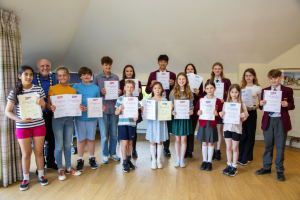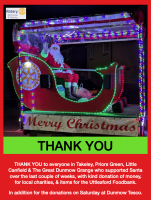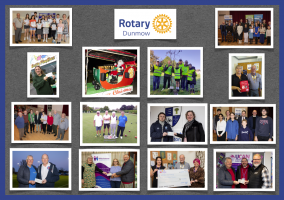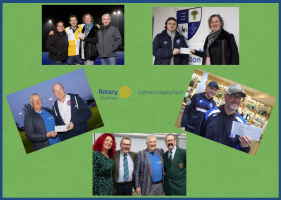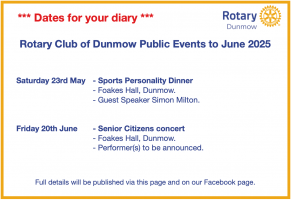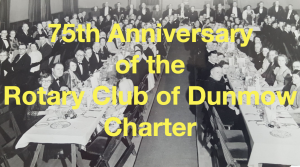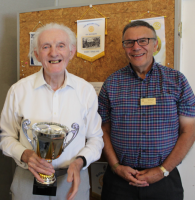Monthly Friday evening conference call meeting from home
Fri, Apr 30th 2021 at 7:00 pm - 9:00 pm
Monthly Friday evening club meeting - Conference call..
Guest Speaker: David Williams - City of London guide.
The Livery Companies of the "Square Mile"
The Friday evening speaker this week was David Williams, a City of London guide, who provided a fascinating talk on the Livery Companies based in the City of London and how they evolved and are still evolving today.
The following text was kindly provided by David Williams.
London is one of the great cities of the world . In non-Covid times it is crowded and busy. It is a capital in many ways – dynamic and innovative, with experienced and qualified people working in so many areas of business and commerce. The City, or Square Mile, has a history stretching back nearly 2,000 years but it is sometimes difficult to find evidence of the Livery Company movement as you walk the streets of London.
Few people are aware that the Livery Companies –and there are 110 of them – have links going back around 700 years and for several centuries they controlled the working practices and craft skills in the City. They had what seem strange names to us today – the Worshipful Company of Cordwainers, the Worshipful Company of Fanmakers, the Worshipful Company of Fletchers, the Worshipful Company of Horners. They still survive and thrive today yet the old crafts they represented have gone.
Then you will find in the list of 110 companies the following – the Worshipful Company of Management Consultants, the Worshipful Company of Air Pilots and Air Navigators, the Worshipful Company of Information Technologists, the Worshipful Company of World Traders. These are Livery Companies which have been formed in recent decades and are an indication that modern industry and business can comfortably embrace the traditions, heritage and ceremonial occasions of the past – and are just as relevant today as they were 700 years ago.
The Livery Companies have an important role to play in the modern business world. The old crafts may have disappeared – but not the Livery Companies. They have re-invented themselves by adapting to change and progress by developing strong charitable and educational links with schools, Unversities, apprenticeships and training programmes for industry and commerce. For example, the Horners were formed in 1638 when drinking vessels were made from the horns of animals; now they are associated with the modern plastics industry. Fanmaking as a craft hardly exists in Britain but air conditioning is an essential industry and the involvement with the Fanmakers Company is strong. The Mercers, number one in the list of 110 companies, originally controlled the trade in woollen cloth and luxury fabrics. Now they manage charitable trusts and property bequeathed by benefactors and have assets worth tens of millions of pounds which can be allocated to several schemes and on-going charitable commitments.
Livery refers to the clothing worn by members on ceremonial occasions and all the Lord Mayors of the City belong to Livery Companies. The same applies to the Aldermen and the two Sheriffs and many others who have also been made Freemen of London. Women, too, make an important contribution to the movement and several have become Masters and Wardens of their respective Liveries.
The Great Fire of London in 1666, the Blitz of 1941, numerous fires – all have taken their toll on many of the grand Livery halls that existed. The industrial revolution nearly destroyed the old Livery principles and attitudes but they managed to survive by re-inventing themselves yet maintaining the principles and attitudes which had been so powerful and successful for hundreds of years. The Livery Company movement remains little known although, within the City, it is greatly admired and appreciated. On those ceremonial occasions, like the Lord Mayor’s show, you have the opportunity to see how modern business and centuries-old traditions work so well in Britain’s capital city.
Link to the City of London Tour Guide Site
.
 Contact William Fraser about this page:
Contact William Fraser about this page:
'What We Do' Main Pages:
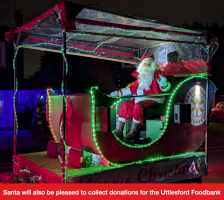
The Rotary Clubs of Dunmow & Takeley Santa's Sleigh ride through Takeley, Priors Green, Little Canfield & Great Dunmow Grange.
more
Dunmow Rotary Youth Competitions 2025/26 Entry closing date for Young Artist, Young Environmentalist, Young Photographer and Young Writer is Friday 13th February 2026.
more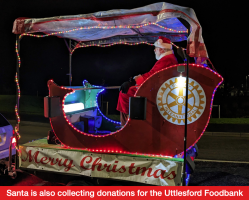
Annual Santa's Sleigh Ride around Takeley, Priors Green, Little Canfield and Dunmow Grange, west of Dunmow Tesco.
more
Annual Sports Personality Dinner held on Friday 26th April 2024, with guest speaker Graham Gooch OBE, ex England and Essex Cricket Captain
more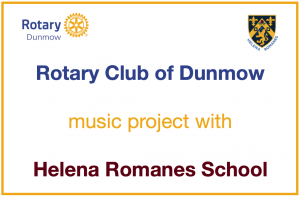
Through the Rotary Club of Dunmow - Collinson Legacy Fund, we have been able to provide Helena Romanes School, Dunmow, with a number of new musical instruments.
more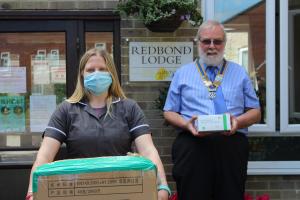
The Community Service Committee is responsible for organising events to give direct service to the community OR to raise funds for community groups and charities. Examples include: Father Christmas collections & Community Concerts.
more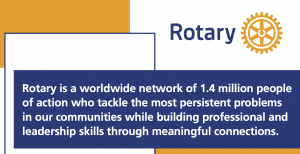
The Membership Service Committee looks after the welfare of members and recruitment of new members. Committee Chair: Barry Clark.
more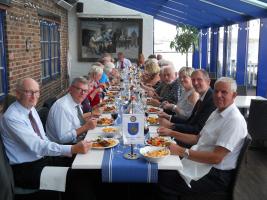
The international Service Committee is responsible for our international service, including raising funds for International Charities and Foundation. It organises member's visits and exchange programmes.
more.jpg)

.jpg)
